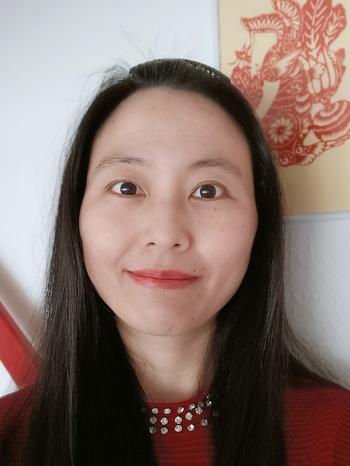Dr. Hailian Chen

Fellow in the project "Epochal Lifeworlds: Narratives of Crisis and Change"
Short Biography
Hailian Chen is an engineer-sinologist trained at the Universities of Tsinghua and Tübingen. Her research has explored the early modern history of mining practices and the Confucian governance of resources (zinc, coal, and human resources). She is the author of Zinc for Coin and Brass: Bureaucrats, Merchants, Artisans, and Mining Laborers in Qing China, ca. 1680s–1830s (Leiden: Brill, 2019), and several peer-reviewed articles on the conceptual and institutional history of technology/art in China. She has taught various courses on modern China at the University of Trier and worked as a research fellow on a DFG-Project, “Monies, Markets and Finance in China and East Asia” at the University of Tübingen. She is currently working at the University of Leipzig as the principal investigator of a project funded by the German Federal Ministry of Education and Research (BMBF) that examines the history of technical education in China. From 2019 to 2023, she has worked at the University of Leipzig as the principal investigator of a project funded by the German Federal Ministry of Education and Research (BMBF) that examines the history of technical education in China. For the winter semester 2023–24, she teaches Chinese history at the Faculty of East Asian Studies (as Substitute Head of the Department for History of China), Ruhr University of Bochum.
Project
Technology for Re-engineering Modern China: A Conceptual and Institutional History of Arts in the Long Nineteenth CenturyTechnology mattered. Driven by Western imperialism, the late Qing reformers embarked on a new path towards institutionalizing technology-related matters for attaining China’s technological independence. For developing manufacturing and educational enterprises, the learning of arts with hands-on practice and their (re)placement in society posed fundamental challenges to the deep-seated Confucian values and traditions in ordering the world. My worldmaking project examines the hitherto ignored non-static concept of technology in the making of modern China. This project addresses how technology—in its traditional term, art—entered Chinese intellectual discourses and became a legitimate field in the educational system, and how Confucian scholars, missionaries, official-industrialists, and overseas-trained Chinese and foreign engineers at the global intellectual frontier articulated their thoughts toward arts and practiced their ideas for re-ordering Chinese society. It makes a paradigm shift in our narratives towards Chinese intellectual transformation by focusing on practical and specialized actors (versus conventional humanist intellectuals). Also, by unearthing previously overlooked conceptual revolution of yi (art) in late nineteenth century China, my project illuminates a crucial shift from art to technology (as well as science and politics), rather than merely the one-sided narrative from art to fine arts in modern China. It adds a new dimension to our understanding of China’s modernization processes, revolutions, and renaissance before and beyond the New Culture Movement (1915–1925).
